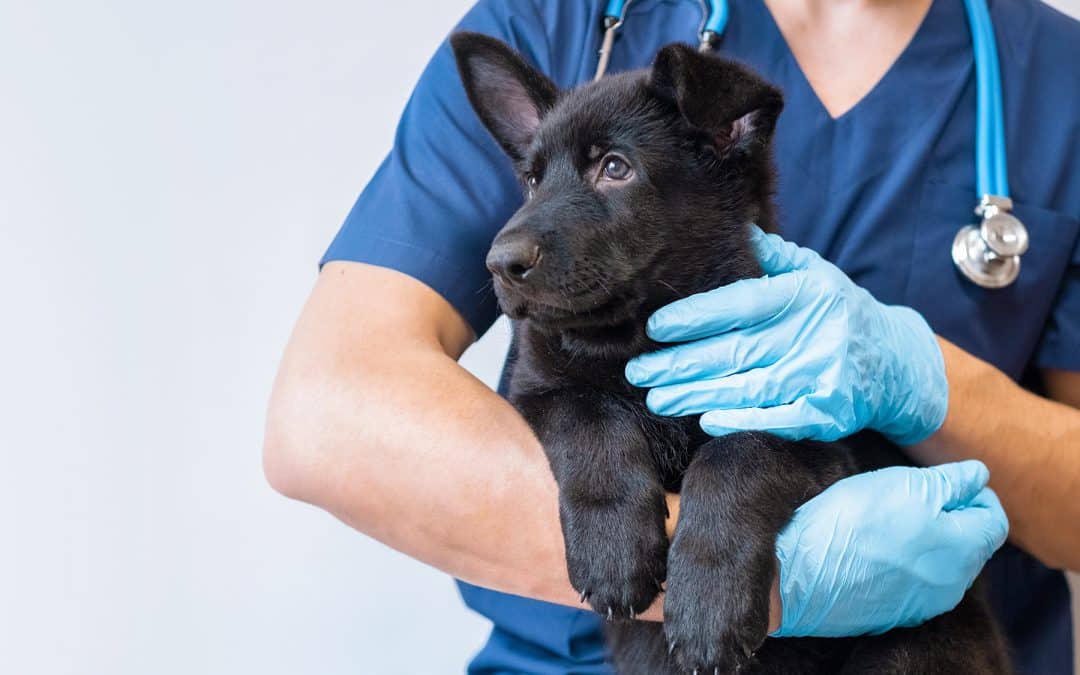Without the protective shield of vaccinations, pets are vulnerable to diseases and illnesses that can significantly impact their quality of life. However, by prioritizing routine vaccinations, pet owners can protect their furry friends against various potentially life-threatening diseases, ensuring their health and happiness.
Expect Kindness & Compassion
Comprehensive Veterinary Care for Your Four-Legged Family Member.
What Are Veterinary Vaccinations?
Veterinary vaccinations are important tools in preventive pet healthcare, designed to stimulate the immune system and provide protection against various infectious diseases. These vaccinations typically contain weakened or inactivated forms of disease-causing agents, which prompt the pet’s immune system to produce antibodies. These antibodies help the immune system recognize and fight off specific pathogens if the pet is ever exposed to them in the future.
Common Vaccinations for Pets
Here are some of the most common vaccinations recommended for pets:
- Rabies Vaccine
- Canine Distemper Vaccine
- Canine Parvovirus Vaccine
- Feline Viral Rhinotracheitis, Calicivirus, and Panleukopenia (FVRCP) Vaccine
- Feline Leukemia Virus (FeLV) Vaccine
- Canine Bordetella Vaccine
- Canine Leptospirosis Vaccine
What do Pet Vaccinations Protect From?
Pet vaccines help protect against many diseases and illnesses, including:
- Rabies: Rabies is a viral disease that affects the central nervous system and is almost always fatal once symptoms appear. Vaccination against rabies is not only essential for the health of pets but is also required by law in many regions to prevent the spread of the disease to humans.
- Canine Distemper: Canine distemper is a highly contagious viral disease that affects dogs worldwide. It can cause a wide range of symptoms, including fever, nasal discharge, coughing, vomiting, diarrhea, seizures, and paralysis. Distemper is often fatal, especially in puppies and unvaccinated dogs.
- Canine Parvovirus: Parvovirus is a highly contagious viral infection that primarily affects puppies and unvaccinated dogs. It attacks the gastrointestinal tract, leading to severe vomiting, bloody diarrhea, dehydration, and potentially fatal complications.
- Feline Viral Rhinotracheitis, Calicivirus, and Panleukopenia (FVRCP): FVRCP is a combination vaccine that protects cats against three common viral diseases: feline viral rhinotracheitis (a severe upper respiratory infection), calicivirus (a cause of respiratory and oral disease), and panleukopenia (also known as feline distemper, a highly contagious and often fatal viral disease).
- Canine Leptospirosis: Leptospirosis is a bacterial disease that affects dogs and can also be transmitted to humans. It is typically spread through contact with contaminated water or urine from infected animals. Vaccination against leptospirosis is recommended, especially for dogs with outdoor access or those at risk of exposure to wildlife.
- Canine Bordetella: Commonly known as kennel cough, bordetella bronchiseptica is a bacterium that causes respiratory infections in dogs. Vaccination against canine bordetella is particularly important for dogs that frequent places where they may be exposed to other dogs, such as boarding facilities, dog parks, and grooming salons.
- Feline Leukemia Virus (FeLV): FeLV is a contagious virus that can lead to various health problems in cats, including anemia, lymphoma, and immune suppression. Vaccination against FeLV is recommended, especially for cats that spend time outdoors or come into contact with other cats.
How Often Should Your Pet Get Vaccinated?
Typically, pets receive an initial series of vaccinations during their early weeks and months of life to establish immunity against common diseases. This initial series is crucial for building a strong immune response and often includes multiple doses of core vaccines. After the initial series, pets require booster shots at regular intervals to maintain immunity levels.
The frequency of booster shots varies depending on factors such as your pet’s age, lifestyle, health status, and local disease prevalence. It’s important to consult with your veterinarian to develop a personalized vaccination schedule tailored to your pet’s specific needs and circumstances.
Schedule a Veterinary Vaccine Appointment in Gallatin, TN
Don’t wait to schedule your pet’s vaccination appointment. Whether you have a new puppy or kitten needing their initial vaccinations or an adult pet due for booster shots, contact Bluegrass Veterinary Hospital in Gallatin, TN, to schedule your next veterinary appointment. Our team is committed to providing personalized care and guidance to meet your pet’s unique needs.
Dr. Benjamin L. Zimmerman, DVM
Dr. Benjamin L. Zimmerman, co-owner of Bluegrass Veterinary Hospital, has been dedicated to veterinary medicine since he was eight, inspired by a formative experience on his uncle’s chicken farm. With extensive hands-on experience on various farms, he values educating pet owners about their furry companions. When not caring for animals, he enjoys playing the fiddle, cooking, and spending time outdoors with his family and pets.


